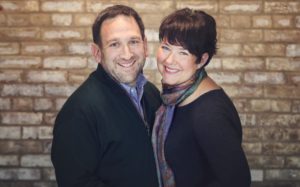When Cassie was diagnosed there was so much we didn’t know about metastatic breast cancer. Since then, we have often found ourselves facing a common set of questions and/or misconceptions so we thought it might be helpful to share some basic facts.
What is metastatic breast cancer?
MBC, also known as Stage IV, is breast cancer that has spread to other parts of the body–most commonly to the bones, liver, brain and lungs.
But if it is in your lungs, isn’t it lung cancer?
No. It is breast cancer in the lungs. It is not considered lung cancer.
How did it go from the breast to your lungs?
Most likely, it traveled through the bloodstream to create tumors in the lungs.
When will Cassie be finished with treatment?
Unfortunately never. While treatable, MBC cannot be cured. Scans, blood tests, and treatments will be ongoing. The goal of the treatment is to stabilize the disease — prevent the cancer from growing and spreading to other parts of the body and to prolong life. Once a treatment stops working (i.e., the cancer grows or spreads) the oncologist will switch Cassie to another type of treatment. This will go on until all viable treatment options have been exhausted.
What is the prognosis?
Some people with MBC live for a long time. We’ve read about women living for ten years! New treatments are being developed all the time. One of the drugs Cassie is taking is relatively new and the impact on survival rates is not yet known but appears positive. However, current general stats say the five year survival rate for stage IV breast cancer is 22%; median survival is three years.
But Cassie looks healthy. How is this possible?
Cassie’s current treatment doesn’t have visible side effects. But, please know that just because she looks normal doesn’t mean she feels well.
If Cassie fights really hard and stays strong, she’ll beat this, right? She is a survivor.
There is no cure for MBC. No matter how hard she “fights” or how positive her attitude this disease will kill her. Just the fact of the matter. We’re trying to stay away from referring to this illness as a battle or a fight as that language suggests that if one fights hard enough the cancer can be defeated. It just doesn’t work like that.
What else should you know? We found this video (https://youtu.be/QDQ0FjP7J-c) done by an MBC patient (who has since died) to be very helpful in wrapping our heads around the disease and some of the common perceptions and misconceptions that arise. Check it out but be warned it’s pretty emotional.
